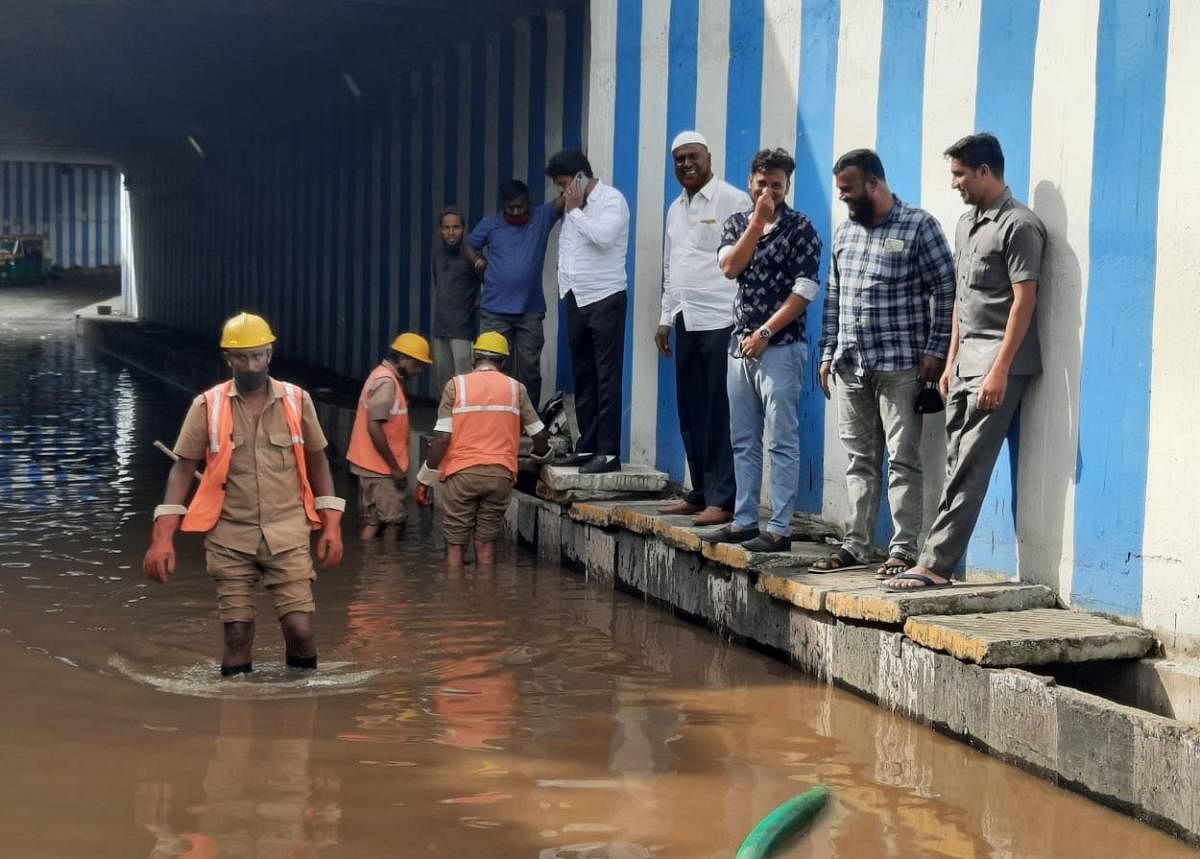
The Government of Karnataka came out with the Bruhat Bengaluru Mahanagara Palike Bill, 2020 (BBMP Bill) in March, 2020. The preamble of the Bill, as placed in Legislature Assembly, clearly mentions that the prevailing Karnataka Municipal Corporations Act, 1976 is ‘inadequate in administrative and structural matters to govern Bengaluru as it provides for limited flexibility’.
Some of the questions emerge out of this. They include: is there a requirement of a law specially for Bengaluru? Does the proposed Bill address all the ills? Is it futuristic? Whether a new administrative set-up would beautify the city, making it sustainable and liveable? Whether only Bengaluru require a new law while other municipalities in the state lag in the development index?
In terms of nomenclature, the BBMP Bill does not offer any change in position. Rather, the BBMP has been retained as a ‘Corporation’ as mentioned under the KMC Act. The Bill could have made an attempt to introduce the concept of ‘Metropolitan Municipality’ or ‘Greater City Municipality’ wherein a city of the magnitude of Bengaluru gets a whole new outlook in governance terms.
In the alternative, the government could have considered establishing separate municipalities for each of the municipal areas based on the territorial division of North, South and East Taluks of Bengaluru. This would have furthered decentralisation of powers as intended under the Constitution. Would it have been appropriate to take some lessons from the Smart Cities Scheme and create a corporate style management structure for BBMP?
Another striking change proposed by the Bill is about ‘corporation authorities’, by including ‘zonal commissioner’ and ‘zonal committees’. Firstly, there is no clear reasoning as to why the zones are created. Secondly, the inclusion of zonal commissioner and zonal committees will add on to the hierarchy, thereby complicating the administrative structure. Due to this inclusion, the bureaucratic representation will outweigh the elected representatives, which may tilt the balance towards the executive management of the BBMP.
This is clearly against the model enshrined under the Constitution and the KMC Act where the municipality could hold the executive accountable for any action or inaction. The classification of zones not exceeding 15, as provided under Section 13(4), is ambiguous.
The Bill seeks to increase the term of mayor and deputy mayor to two and half years from the existing period of one year, which is a welcome move. This move to increase their term should be extended the to the other areas including the corporations and municipalities. The Draft Karnataka Municipalities Bill, 2019, submitted by the National Law School of India University (NLSIU), moots for this idea to have a uniform tenure to increase from one year to five years.
The provision for Standing Committees has been retained without any changes. However, one notable exclusion has been a provision for the creation of ‘Other Committee’ which can serve as ad-hoc committee for various purposes than those mentioned in the proposed Bill. Further, due to the proposed increase in hierarchy and authorities, functioning of Area Sabhas and Ward Committees may be truncated.
Among the identified functions for the BBMP in the bill is solid and liquid waste management. Section 150 of the proposed Bill imposes a duty on the municipality for handling different types of waste including bio-medical, plastic and electronic waste. However, alarmingly, construction waste being one of the major categories under which waste is generated, has not been dealt with.
As the city is grappling with the issue of waste handling, management and disposal, it is imminent for the government to reconsider the aspect of waste management provisions under the proposed law.
For the improvement of aesthetics and protection of heritage, the bill proposes ‘Urban Heritage’ as the responsibility of BBMP by segregating it into four grades - Heritage Grade I, II, III, and Heritage Precincts, with each of these grades having varied importance and requirements of preservation. But the fallacy lies in the failure to address issues of lake rejuvenation and management, forest conservation, tree preservation, sustainable use of resources and other areas of environmental significance.
Municipal services
Some of the municipal services are presently under the domain of parastatals including that of water supply, disaster management, transport, housing, among others. Both Central and state governments provide financial assistance through schemes like Smart Cities etc for betterment of municipal infrastructure and housing facilities.
Considering the operation of various parastatals in the city, the role of BBMP becomes crucial to ensure better coordination and delivery of services to citizens which are unfortunately not addressed in the proposed framework, leading us to question the very purpose of such a Bill. Should a municipality bill address only the powers of an authority or should it mandate the various functions, especially citizen-centric, of the authority required in public interest?
The proposed Bill has several inadequacies which must be addressed including the fixing of liability on officers and members of BBMP for any misapplication or misuse of BBMP funds. The Directorate of Municipal Administration (DMA) is the nodal authority for monitoring, overseeing and effective coordination of affairs of municipalities throughout the state except for Bengaluru. In the absence of DMA, the Bill has left it open without addressing who shall be responsible for overseeing, monitoring and effective coordination with neighbouring municipalities, in case they arise.
Despite its limited scope, some progressive provisions in the Bill that must be given due consideration for the governance to permeate to the grassroot level in an effective manner. The present framework depicts a rather tumultuous hotchpotch of overlapping legislations that need remedying through consolidation.
Drawing inspiration from the model adopted in Rajasthan, the most appropriate solution hints at a single substantive law for the governance of the whole state. This would require complete transformation by consolidating the Municipalities Act and Municipal Corporations Act into a single, comprehensive legislation for effective, efficient and equitable governance by urban local bodies in Karnataka.
(Bhat is Professor of Law and Coordinator, and Parthasarathy is Teaching Associate, Centre for Environmental Law Education, Research and Advocacy, NLSIU)